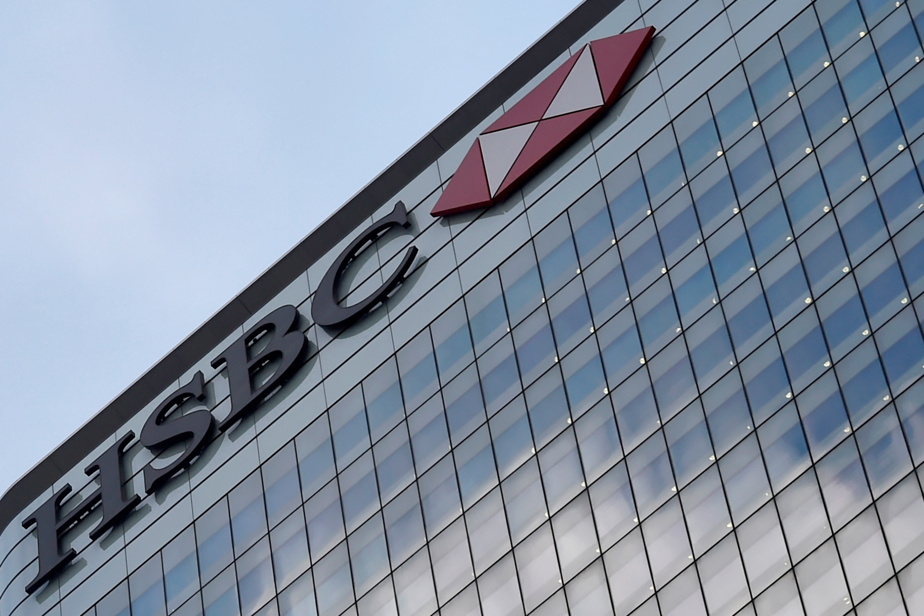The approved sale of HSBC’s Canadian operations to Royal Bank of Canada (RBC) would reduce competition in the mortgage market, laments a mortgage strategist critical of the transaction.
Mortgage strategist Robert McLister calls the Trudeau government’s approval of the deal “a sad day for mortgage borrowers.”
He judges that HSBC Canada had a different approach from that of the big Canadian banks. He says big banks regularly had fixed and variable interest rates 20 to 80 basis points higher.
HSBC Canada believed it could offset its lower rates by attracting “quality clients” who defaulted less and held more financial assets, Mr. McLister analyzes.
“It was a lender that offered everyday low prices, which is extremely valuable in the Canadian market,” insists the strategist, noting that it is difficult for smaller players in the financial sector to accumulate market share in Canada, where the big six banks are so dominant.
The $13.5 billion sale of HSBC Canada to RBC cleared its final hurdle Thursday, getting the green light from Finance Minister Chrystia Freeland. The minister cited the Competition Bureau’s finding, released in September, when she too approved the transaction, that the acquisition would not stifle competition in the mortgage market, which she said was “mostly driven by competition between the five biggest banks.”
RBC President and CEO Dave McKay said in an interview Thursday that there is strong competition in the Canadian banking sector and that the deal would not diminish it “in any form.”
“There is enormous competition in the Canadian market. There are more than 50 banks, there are financial cooperatives in each province which compete fiercely, there are non-financial competitors. New competitors are constantly entering this sector,” he argues.
For Canadians who had no intention of leaving their bank, “the main advantage of HSBC was that it offered borrowers arguments in their negotiations,” emphasizes Mr. McLister.
“I’ve spoken to countless clients over the years who went to the HSBC website, found a rate and then discussed it with their banker,” says the strategist. Typically, the bank didn’t offer exactly the same rate, but it was close enough to avoid losing their customer. »
HSBC said in a brief update on Friday that it and RBC continue to make progress toward closing the transaction. The deal is expected to be officially finalized in the first quarter of 2024.
Its president and CEO, Noel Quinn, said that although HSBC has been present in Canada for many years, “the reality is that HSBC Canada only has about a 2% market share and we cannot not prioritize the investments needed to develop it further.”
“It is therefore in the best interests of HSBC Canada customers for the bank to become part of RBC, which will allow it to take it to the next level,” he said in a statement.
Freeland’s approval comes with conditions for RBC, including that none of HSBC Canada’s 4,000 employees be laid off within six months of the closing date, or within two years for front-line staff. Banking services are to continue to be provided in at least 33 HSBC branches for four years.
RBC also agreed to provide $7 billion in financing for the construction of affordable housing across the country as part of the conditions of approval.
The federal government has launched a consultation on strengthening competition in the financial sector, which will examine issues including whether mergers between big banks should be formally banned and whether the government should limit the growth of big banks through acquisition bias.
Several speakers had called for the takeover of HSBC Canada by RBC to be blocked, because it would reduce competition in an already highly concentrated banking sector, according to them.
Keldon Bester, executive director of the Canadian Anti-Monopoly Project, believes Ottawa missed an opportunity “to protect competition and affordability in the banking sector.”
“Even though the commitments related to affordable housing financing appear positive, there are few ways to protect Canadian homeowners in an environment of higher interest rates,” he denounces in a press release.
Mr. Bester believes that by approving the transaction, the government could have obtained commitments to protect HSBC’s mortgage customers against rate increases when they renew. Instead, he accuses the government of acting as if it “decided to simply keep HSBC customers well informed of their limited options going forward.”
